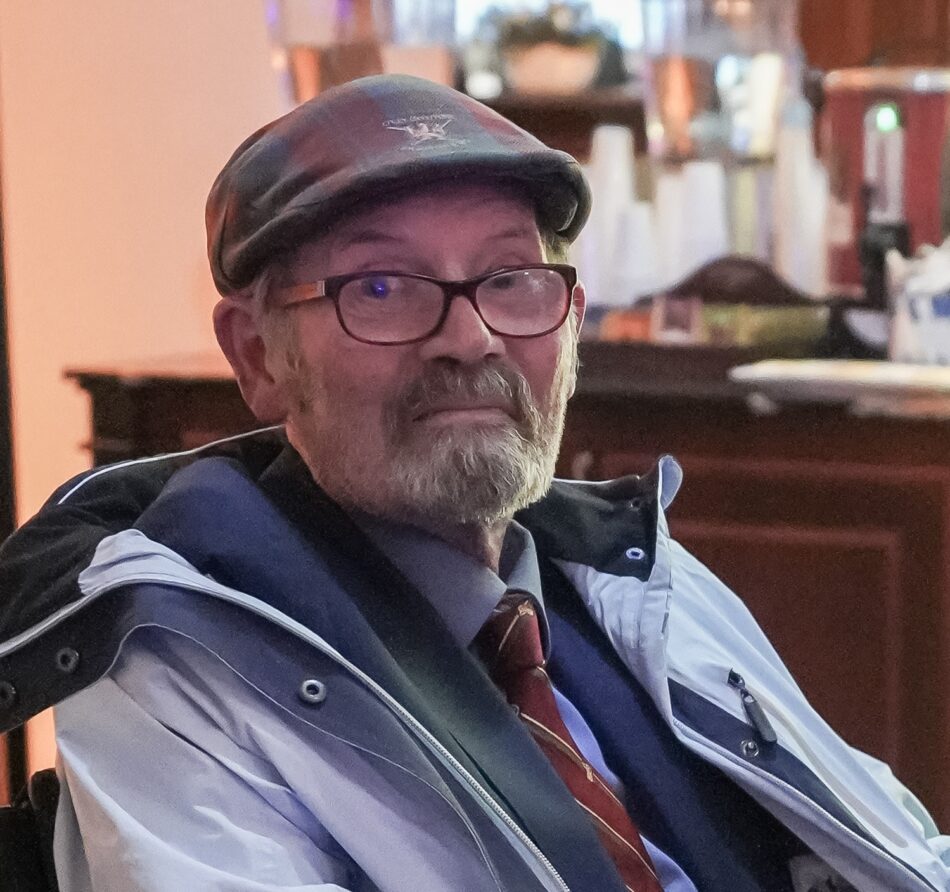Interview with professor emeritus Jan E. Veldman, MD, Ph.D., otorhinolaryngologist and immunologist, in 1975–2004 he worked in the Ear, Nose and Throat Clinic in Utrecht (the Netherlands), professor at the Extraordinary Chair in Experimental Otology and Otoimmunology – created especialy for him by the Utrecht University, founding president of the international academic conference ORLIAC (organized without interruption since the 1980s), Friend Forever of the World Hearing Center of the Institute of Physiology and Pathology of Hearing in Warsaw/Kajetany (Poland).
Aleksandra Malinowska (WHC): What would you advise a young otorhinolaryngologist at the start of their professional career?

Prof. Jan E. Veldman: Do not go for the money. Learn from the best specialists – laryngologists and ENT surgeons. Complete the training in your country, then travel abroad and find a friendly professional place to continue training and gain experience. Then return home and start building your own team. Balance the clinical with scientific work: write and publish, participate in scientific meetings and show yourself and your work. Try to attend otolaryngology workshops, organized regularly by different ORL centers, whose instructors are glad to share their experience with younger professionals.
AM: Can you recommend any specific training courses?
Prof. J.E.V: You can easily find good training courses on the Internet. In 1984, I initiated the international academic meeting ORLIAC, including the ORL workshops; it has been organized every second year since then. This year, the meeting is taking place in Rome. It will include the Satellite Temporal Bone Courses conducted by prof. Henryk Skarżyński and prof. Piotr Skarżyński from World Hearing Center (Warsaw/Kajetany, Poland) and prof. Milan Profant from Comenius University (Bratislava, Slovakia). In 1994, in Thailand, I initiated the first temporal bone course (TBC) with colleagues from the Ministry of Health in Bangkok. I built up a faculty over the years with professors – friends from USA, Australia, Austria, France, Italy, Spain, Belgium and The Netherlands. This annual course still takes place – it lasts one week and gather the participants from all over the South-East Asia. After the course, several of the faculty, before going home, join as volunteers the Thai Rural Ear Nose and Throat Foundation to operate the poor people in their country side. Several years later, I initiated together with a Dutch team of head and neck surgeons, also in Bangkok a similar course in head and neck surgery, also on an annual basis. Both courses are now an integral part of the resident training programme in Thailand (5-years). A big honour for all of us, who dedicated teaching in South-East Asia.

AM: Besides manual predispositions, what qualities are essential to becoming a good ENT surgeon?
Prof. J.E.V: Perseverance is crucial. After graduation, it takes some 5–10 years to become a good specialist. Over the years, the most important thing is gaining experience – performing surgeries under the supervision of more experienced surgeons – preferably in various centers around the world, in countries where it is possible, e.g., in Japan, Korea, Vietnam, India, Indonesia, Malaysia, South Africa. In some countries, there are legal restrictions on the performance of surgical procedures by foreigners, e.g., in the USA, you can only observe. In the 1980s and 1990s, I traveled to the countries of South Asia every year, mainly to Thailand, Japan, and Korea, as a visiting professor and performed surgeries there. A lot of people came to watch and learn.
AM: Are any specific personal characteristics important?
Prof. J.E.V: You have to be respectful of others, be polite in relationships, and not discriminate against anyone, especially because of their skin color. These traits are also the basis for good team cooperation and international research activities.
AM: And in relation to patients?
Prof. J.E.V: Of course. And you have to be honest – with yourself and with people. In the case of patients, you need to be factual and open about treatment options and then about its results. If something goes wrong during the surgery, you have to tell the patient honestly. Ear surgeries can be dangerous. If you see that some procedure may be too complicated for you to perform, do not do it. Or find additional training to develop your competencies.
AM: And how to deal with failure?
Prof. J.E.V: Well, everyone has problems. It’s worth analyzing and reflecting on what went wrong. An experienced surgeon knows when to withdraw if a serious problem occurs during surgery. Years of practice and experience allow him to recognize this particular moment. For this reason, young surgeons should operate under the supervision of experienced mentors who, at a critical moment, will say, “Stop, don’t go on.” The mentor cannot leave a young doctor to perform a procedure alone. What’s more, the mentor, if he sees that the resident is not predisposed to microsurgery, must be able to tell him about it.
There is another aspect related to possible failure – maintaining proficiency and competence. You cannot operate 2–3 times a year and remain a good surgeon. To maintain skills and craftsmanship, you have to operate constantly. When you retire and your daily routine of surgeries is gone, you need to stop operating.
AM: At the beginning of our conversation, you mentioned building your own team. How to create a good team from scratch?
Prof. J.E.V: To find valuable collaborators, you need knowledge, experience, and – as the saying goes – a nose for people. Self-centered, self-interested, and unkind people will certainly not work in a team. You should to be aware that creating a well-coordinated team is a process that can take many years and requires attention and wise leadership from the leader. It is also worth remembering what Hippocrates said: “Remain all ways respectfull and loyal to your teachers.”
AM: Nowadays, when microsurgeons have at their disposal advanced technologies – microscopes, computers, robots – are there any challenges left in otolaryngology?
Prof. J.E.V: I think that new technologies in themselves are a massive challenge for us.
AM: Thank you very much for the interview.





